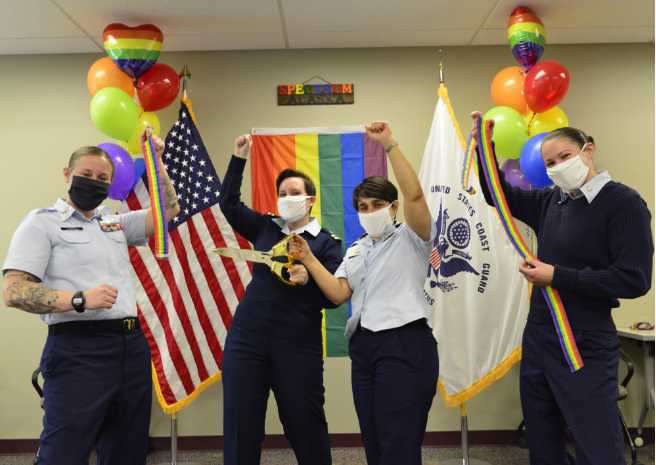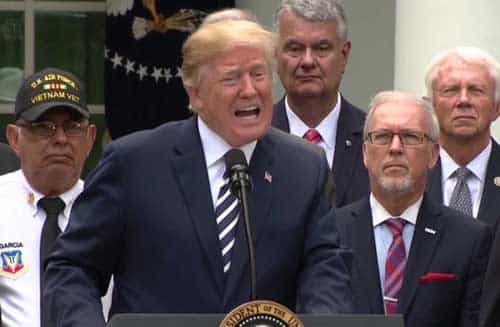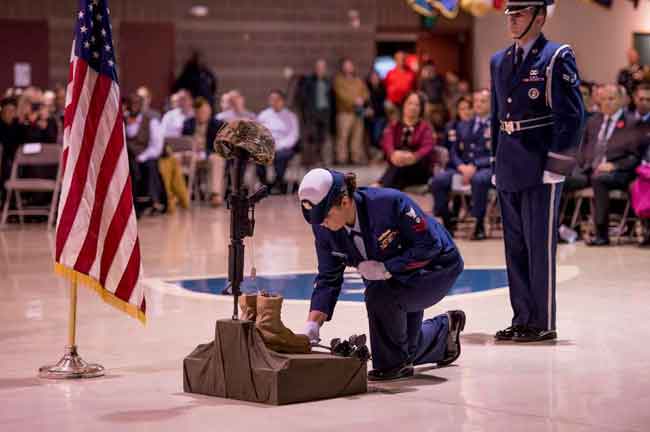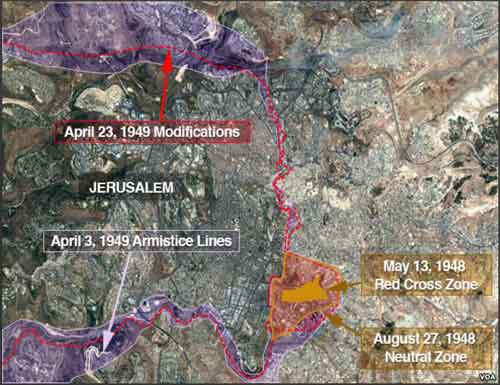 Americans have been observing Veterans Day since November 11, 1954 in honor of our military men and women.
Americans have been observing Veterans Day since November 11, 1954 in honor of our military men and women.
But, our country has celebrated November 11 for many years prior to that. It was in November of 1919 that President Wilson set aside November 11 as “Armistice Day.” In his proclamation, President Wilson said, “To us in America, the reflections of Armistice Day will be filled with solemn pride in the heroism of those who died in the country’s service and with gratitude for the victory, both because of the thing from which it has freed us and because of the opportunity it has given America to show her sympathy with peace and justice in the councils of the nations…”
The date of November 11 was chosen to reflect that day in 1918 when the hostilities in World War I came to a close on the 11th hour of the 11th day of the 11th month. Although “The Great War” was not officially concluded until the Treaty of Versailles was signed on June 28, 1919, November 11, 1918 has always been seen as the end of that conflict.
This November 11th, 2019, marks the 101st anniversary of the end of that horrific war where the United States and so many other countries on earth lost so many of our youngest, most capable and talented men in a war that was to be the great war to end all wars.
By 1926, 27 states had already declared November 11 as a legal holiday, so the US Government requested the president to issue a proclamation calling for display of the American flag on all government buildings, and for the date to be observed in schools and churches as well as other suitable places complete with ceremonies.
“In order to insure proper and widespread observance of this anniversary, all veterans, all veterans’ organizations, and the entire citizenry will wish to join hands in the common purpose.” – President Dwight David Eisenhower
But, it wasn’t until May 13, 1938, that the Armistice Day Act was approved as a day set aside to honor the veterans of World War I, and a day dedicated to the cause of world peace.
In 1954, almost a decade after the conclusion of World War II, where the nation had mobilized more soldiers, sailors, Marines, and airmen then at any other time in our history, and the United States had ended its part in the Korean War, the act of 1938 was amended and the term Armistice was struck, and Veterans was put in its place. That legislation was approved on June 1, 1954, and November 11 was set aside to honor American veterans of all wars.
It was later that same year, that President Dwight D Eisenhower issued the very first Veterans Day Proclamation on October 8. Eisenhower stated in that proclamation, “In order to insure proper and widespread observance of this anniversary, all veterans, all veterans’ organizations, and the entire citizenry will wish to join hands in the common purpose. Toward this end, I am designating the Administrator of Veterans’ Affairs as Chairman of a Veterans Day National Committee, which shall include such other persons as the Chairman may select, and which will coordinate at the national level necessary planning for the observance. I am also requesting the heads of all departments and agencies of the Executive branch of the Government to assist the National Committee in every way possible.”
[content id=”79272″]
But, Veterans Day would lose its November 11 date for seven years beginning in 1971. This jostling of the holiday occurred because of the Uniforms Holiday Bill of 1968. It was then that legislation was passed so that federal employees could celebrate three-day weekends for four holidays a year. That bill set aside Washington’s Birthday, Memorial Day, Veterans Day, and Columbus Day as holidays that would fall on Mondays. Consequently, Veterans Day was moved to the fourth Monday of October.
Although Veterans Day fell on October 25 in 1971, many states continued to celebrate that day on November 11. This led to much confusion and so in 1975, President Gerald R. Ford returned Veterans Day back to its original November 11 date by signing a law to that effect. By 1978, Veterans Day was once again celebrated on its original day.
Mail is not delivered, and all nonessential federal offices are closed and their employees receive a paid holiday on Veterans Day. If Veterans Day falls on a Saturday, either Saturday or the preceding Friday is considered the holiday. If Veterans Day falls on a Sunday, the following Monday is considered a holiday for federal workers.
November 11 is considered a holiday in many countries in the world. The day remains Armistice Day in France, Belgium, and New Zealand and now Serbia. The United Kingdom and its Commonwealth celebrate November 11 as Remembrance Day and is still designated as a day observing the end of hostilities in World War I.
We would like to thank, honor, and remember those in our military on this, their special day, for their selfless service to our nation.
|
|
|








